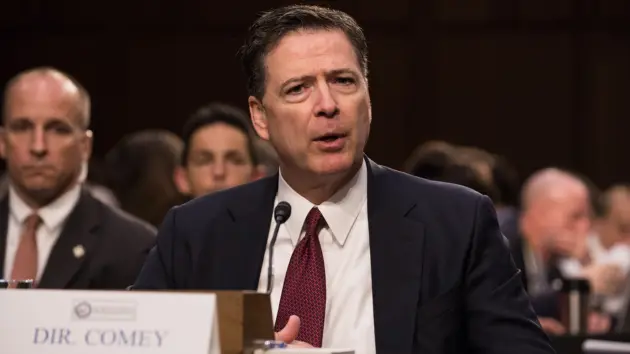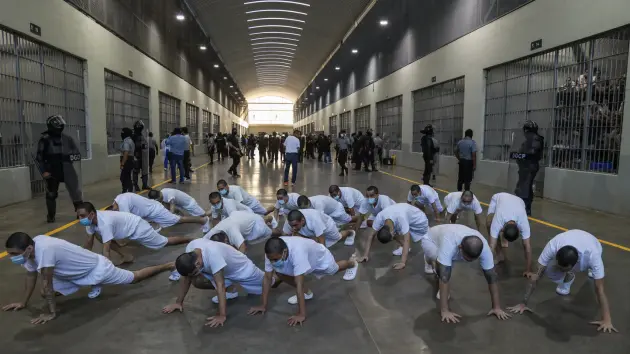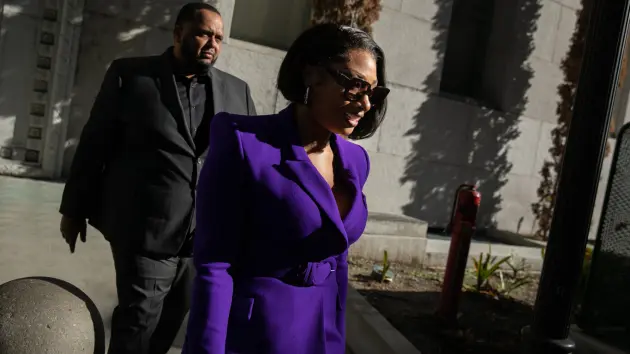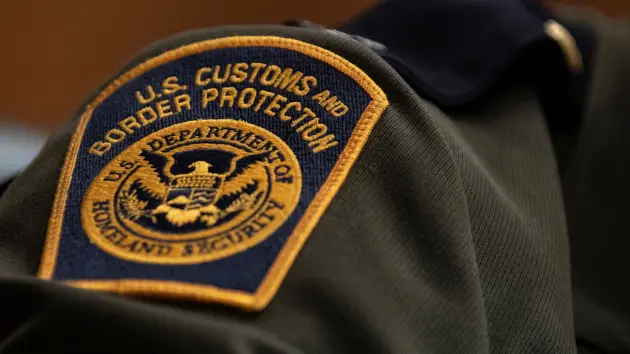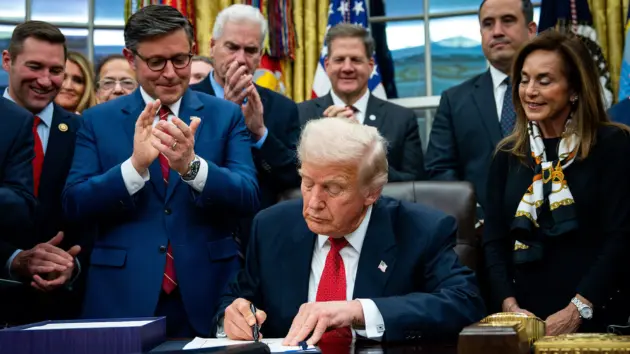(WASHINGTON) — With the future of the prosecution of James Comey in doubt after a judge expressed alarm Monday about a “disturbing pattern of profound investigative missteps” in the case, lawyers for the former FBI director are due in federal court Wednesday to argue that the indictment be thrown out over concerns it’s the product of a vindictive prosecution.
Defense lawyers have argued that the prosecutors are engaging in an act of political retribution at the behest of President Donald Trump — who they allege “expressly sought charges regardless of the facts” — to punish Comey for his outspoken criticism of the president.
“Bedrock principles of due process and equal protection have long ensured that government officials may not use courts to punish and imprison their perceived personal and political enemies. But that is exactly what happened here,” Comey’s lawyers argued in court filings.
Amid an ongoing investigation into Russian meddling in the 2016 election, Trump abruptly fired Comey in 2017 and has repeatedly called for him to be criminally charged. A prosecutor handpicked by Trump brought an indictment against Comey in September, despite career prosecutors identifying critical flaws in the case and recommending against charges, ABC News previously reported.
“Objective evidence establishes that President Trump directed the prosecution of Mr. Comey in retaliation for Mr. Comey’s public criticisms and to punish Mr. Comey because of personal spite,” Comey’s attorneys argued.
Comey’s lawyers have argued that the case should be thrown out because Trump has “genuine animus” for the former FBI director, and the case itself would likely not have been brought absent the intervention of the president himself.
When Trump’s original pick to lead the United States Attorney’s Office in the Eastern District of Virginia declined to bring charges against Trump’s adversaries, the president fired him and installed his former defense attorney with what sources said was the express mandate of bringing charges against Comey and others.
“When no career prosecutor would carry out those orders, the President publicly forced the interim U.S. Attorney to resign and directed the Attorney General to effectuate ‘justice’ against Mr. Comey,” Comey’s lawyers argued.
The two-count indictment against Comey claims that he lied to Congress when he testified that he never authorized other FBI officials to leak information to the press, despite allegedly directing a Columbia University professor to pass information to a New York Times reporter. Comey pleaded not guilty to the charges and denies ever authorizing anyone at the FBI to leak information on his behalf.
Prosecutors argue that Comey’s motion falls short of the high legal standard to prove a vindictive prosecution, claiming that he cannot prove the case was brought “solely to punish” him for his criticism of the president. Highlighting Comey’s role leading the FBI, prosecutors argued that him making false statements “implicates societal interests of the highest order. ”
“The Executive cannot be expected to ignore agency heads lying about official actions simply because they later become outspoken critics,” prosecutors argued.
Instead of directly refuting what defense lawyers say is “smoking gun evidence” — a Sept. 20 social media post in which Trump directly demanded that Attorney General Pam Bondi act “NOW!!!” to prosecute Comey — prosecutors have sought to infuse the record with emails and notes suggesting that Comey used a conduit to pass information to the press. Prosecutors have also argued that Interim U.S. Attorney Lindsey Halligan, who made the unusual move to present Comey’s indictment before a grand jury on her own, does not have animus for Comey, even if the president does.
Prosecutors also pushed back on the claim that Trump’s social media posts prove that the prosecution is vindictive; instead, they argue that Trump’s social media posts alleging Comey committed crimes create “a years-long record of legitimate” reasons to bring a case against the former FBI director.
“The defendant primarily cites the President’s social-media posts. These posts reflect the President’s view that the defendant has committed crimes that should be met with prosecution. They may even suggest that the President disfavors the defendant. But they are not direct evidence of a vindictive motive,” prosecutors wrote.
Wednesday’s hearing comes as Halligan’s actions are attracting scrutiny from a magistrate judge who expressed alarm that a “disturbing pattern of profound investigative missteps” may have irreparably harmed the case. In a scathing ruling on Monday, Judge William Fitzpatrick said he identified at least two instances when Halligan made “fundamental misstatements of the law” during her grand jury presentation as well as raised concerns that Comey’s indictment may not have been fully presented to the grand jury.
“If this procedure did not take place, then the Court is in uncharted legal territory in that the indictment returned in open court was not the same charging document presented to and deliberated upon by the grand jury,” Fitzpatrick said.
Fitzpatrick ordered prosecutors to hand over audio recordings of the grand jury proceedings to defense lawyers, though U.S. District Judge Michael Nachmanoff delayed that decision to hear objections from prosecutors. The dispute is expected to come up during Wednesday’s hearing in addition to the motion to dismiss.
Comey is currently set to go to trial on Jan. 5.
Copyright © 2025, ABC Audio. All rights reserved.


